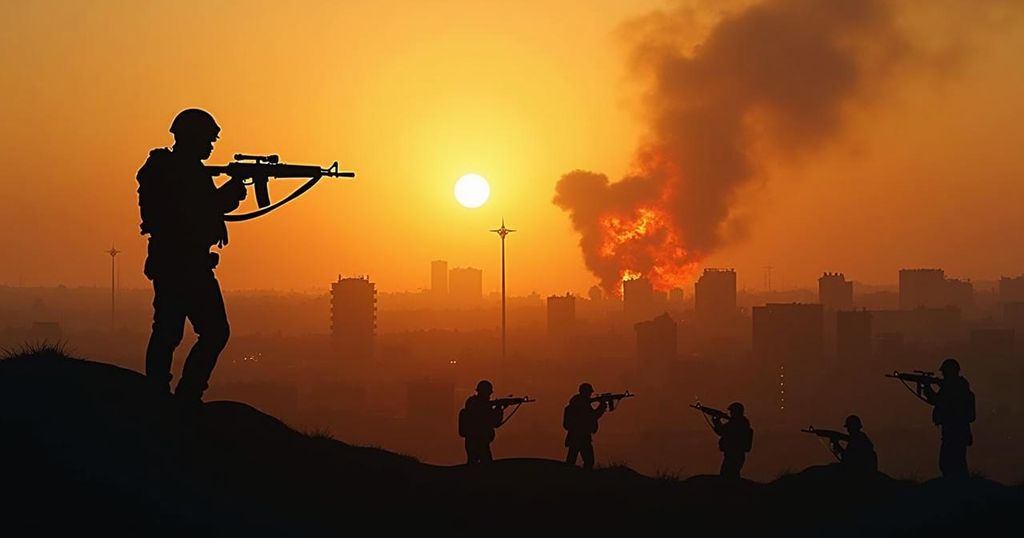Escalating Conflict: Iran and Israel Engage in Intensified Military Exchange

Iran launched over 180 ballistic missiles at Israel, prompting retaliatory airstrikes from Israel targeting Hezbollah in Lebanon. Prime Minister Netanyahu and U.S. President Biden have condemned the attacks, with Biden affirming support for Israel. The conflict escalates further as international figures weigh in on the situation, escalating tensions in the region.
In recent developments, tensions between Iran and Israel have escalated, marked by Iran’s launch of over 180 ballistic missiles aimed at Israel, prompting a strong response from Israeli authorities. Prime Minister Benjamin Netanyahu emphasized that Iran will face repercussions for its actions, while the United States affirmed its unwavering support for Israel, with President Biden stating, “The attack appears to have been defeated and ineffective, and this is a testament to Israeli military capability and the US military.” In retaliation, Israel has initiated a series of military operations, including airstrikes in southern Beirut, targeting Hezbollah, resulting in significant casualties. The Lebanese health ministry reported 55 fatalities and 156 injuries due to prior Israeli airstrikes. Iran, asserting its actions were defensive, has indicated a willingness to cease hostilities unless provoked further. The situation has garnered international attention, leading to an emergency meeting scheduled by the U.N. Security Council to address the escalating conflict. Prominent figures, such as former Israeli Prime Minister Naftali Bennett, have called for decisive action against Iran, suggesting this moment represents a pivotal opportunity to alter the region’s dynamics and weaken Iran’s military capabilities. Concurrently, Hamas has expressed support for the Iranian missile strikes, framing them as retaliation for recent Israeli military actions in Lebanon. International responses continue to unfold, with French President Emmanuel Macron condemning Iran’s actions while affirming support for Israeli sovereignty. The ongoing military exchanges raise concerns about stability in the Middle East, with Israel committing to extended operations in the region as tensions flare.
The conflict between Iran and Israel has consistently been characterized by mutual hostility and sporadic military exchanges. The latest escalation stems from long-standing grievances, including Israel’s military actions in Lebanon which have targeted militant leaders and infrastructure, provoking Iran’s response. Regional dynamics involve numerous state and non-state actors, notably Hezbollah and Hamas, both of which ally with Iran against Israel. The backdrop of these tensions includes ongoing debates surrounding Iran’s nuclear program and its support for militant factions in the region, complicating international diplomatic efforts.
In conclusion, the recent missile attacks by Iran against Israel mark a significant escalation in ongoing hostilities between the nations. Israeli and U.S. authorities have pledged a strong retaliatory stance, while international figures express concern over the potential for wider conflict in the region. As both sides remain entrenched in their positions, the humanitarian impact, especially on civilians in Lebanon, escalates, prompting calls for diplomatic dialogue amid military actions.
Original Source: www.hindustantimes.com








